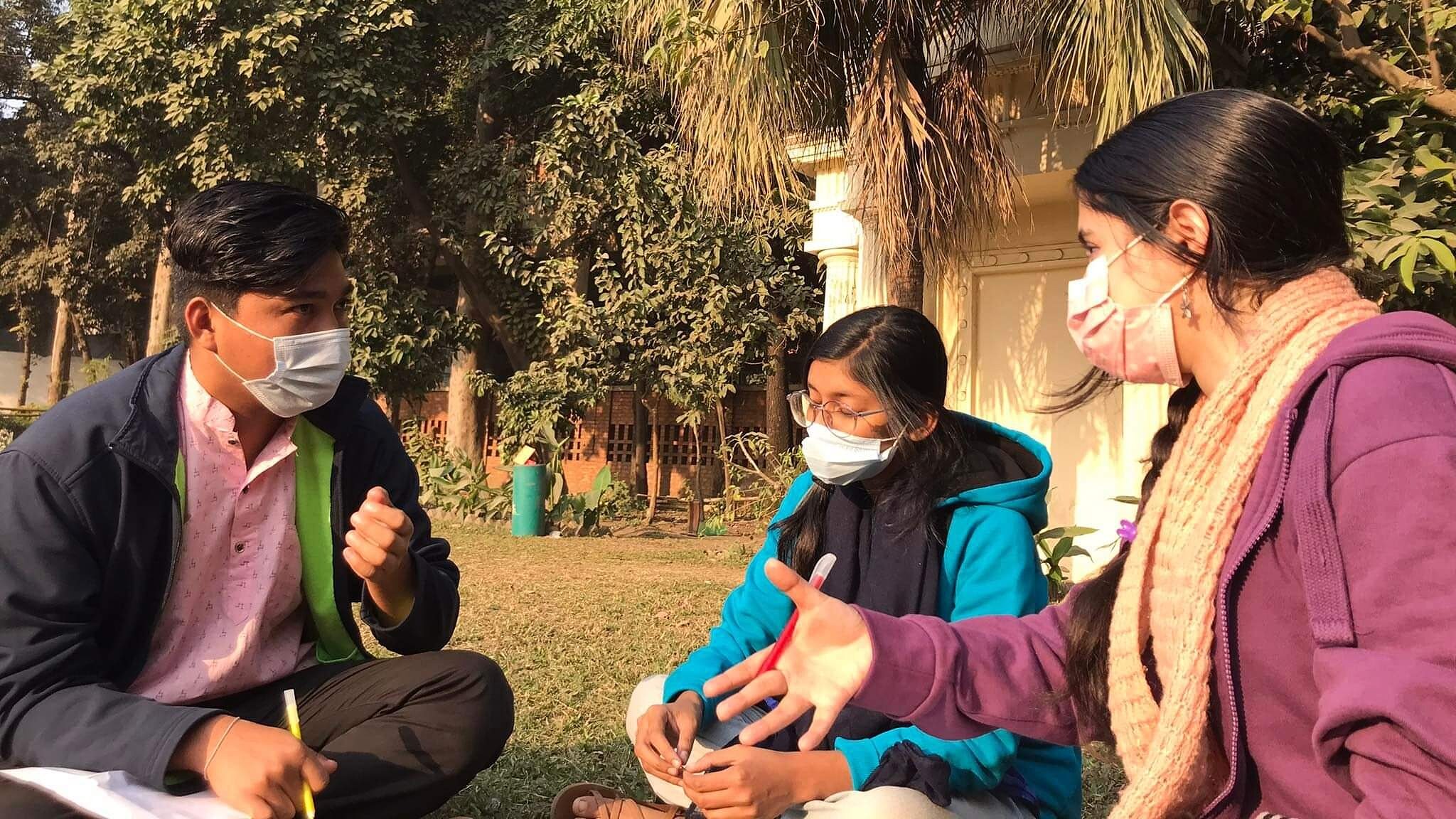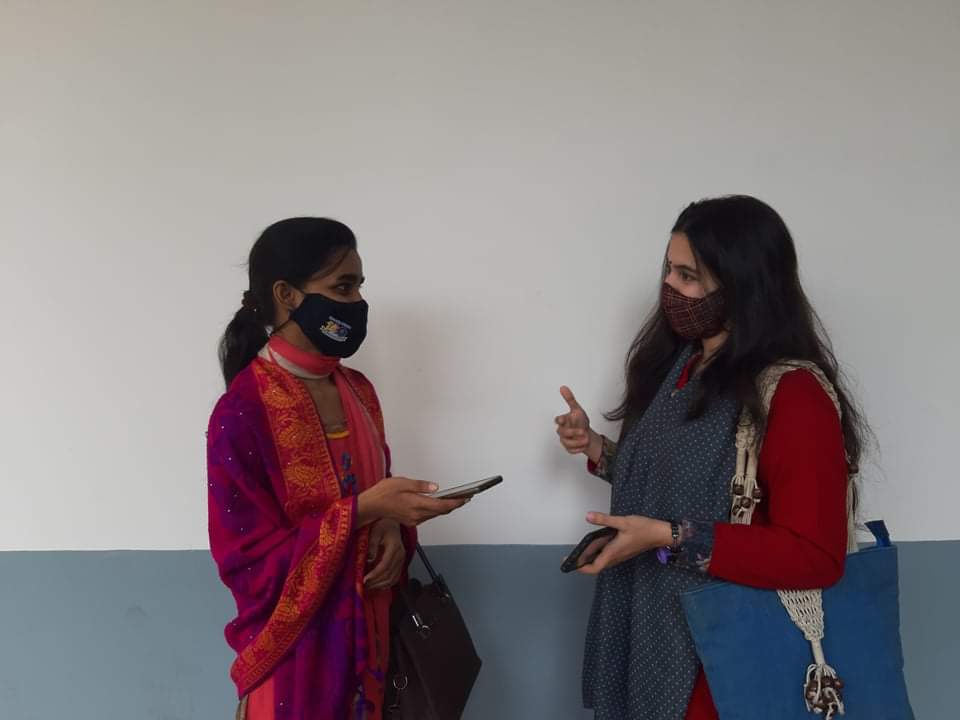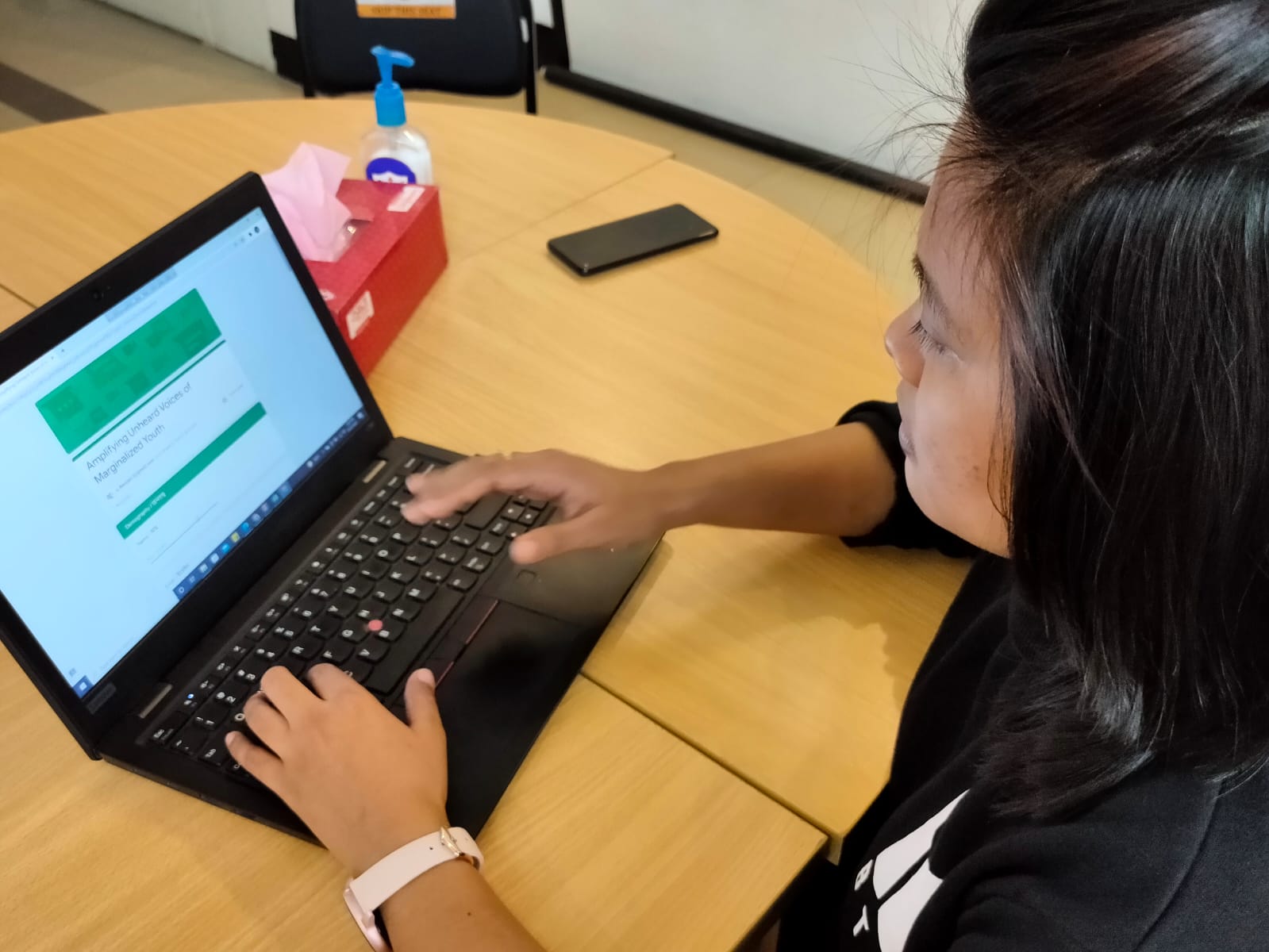SAP Stories 2021
Amplifying the Unheard Voices of Marginalized Youth
Bangladesh boasts a rich diversity of religions, languages, traditions, and ethnicities. Alongside the majority Bengali ethnic group, Bangladesh is home to 50 Indigenous Ethnic Communities. Indigenous people in Bangladesh are categorized with geographical demography as Plain Land Indigenous community from the Hill Tracts. No matter the category, Indigenous people often face discrimination, bullying, and unequal treatment and behavior based on their culture and identity.

In particular, the plain land Indigenous people from the Northern Region of Bangladesh face discrimination, as they are regularly refused service or provided with different dinnerware than what is provided to the general public. As part of the European Union-funded ALLY project, four fellows from Bangladesh are working to change that.
Pragna Jui Chakma, Barsa Ahmed, Faria Rahman, and Shoumik Dumri joined the ALLY project in the summer of 2021, during which they participated in the ALLY online training on Preventing Violent Extremism. In December 2021, they joined an in-person training in which they built on their initial context analysis to refine their Social Action Plan “Amplifying the Unheard Voices of Marginalized Youth.”


“The ALLY Fellowship was an eye-opening journey for me. Not only do I now have some understanding of Violent Extremism but also have become more accepting of different perspectives. The trainings created an urge inside me to go out and work for ensuring a community where we cal all enjoy the beauty of diversity.”
– Barsa Ahmed
With technical and financial support from ALLY, they will generate legal evidence in relation to the radicalization of Indigenous youth, and document discriminatory customs, behaviors, and narratives among Bengali youth religious schools for further intervention in conflict analysis, mitigation, and awareness rising for Amplifying voice of youth.
“There has been generation-long discrimination towards indigenous people in our country. Unfortunately, we neither have any legal evidence of these events nor any policy. By generating evidence, we hope to bring change in policies and prevent radicalization among them.”
– Faria Rahman
On 25 February 2022, the fellows will present their evidence and convene government & civil society organizations from throughout Bangladesh to inform them about the systemic discrimination and create momentum for taking the initiative to address the conflict.
For more information about “Amplifying the Unheard” Social Action Plan, please visit their Facebook page.

Follow the Network’s Asia Programming on social!
